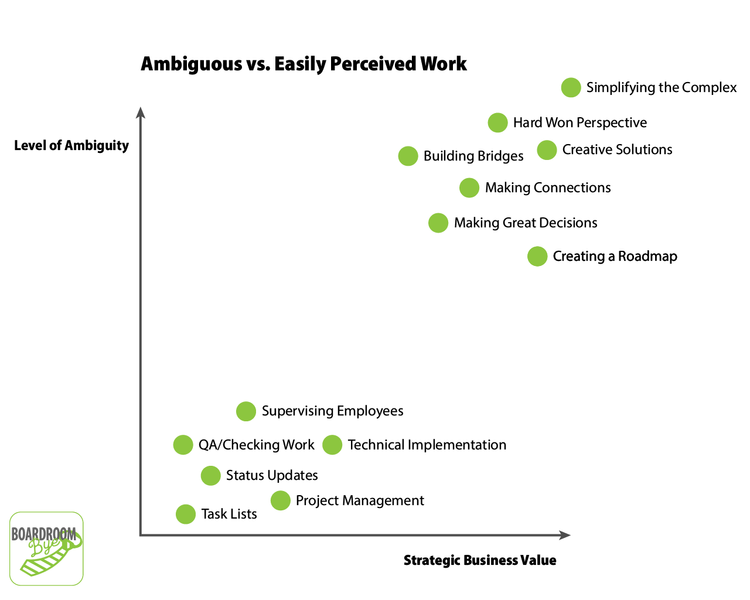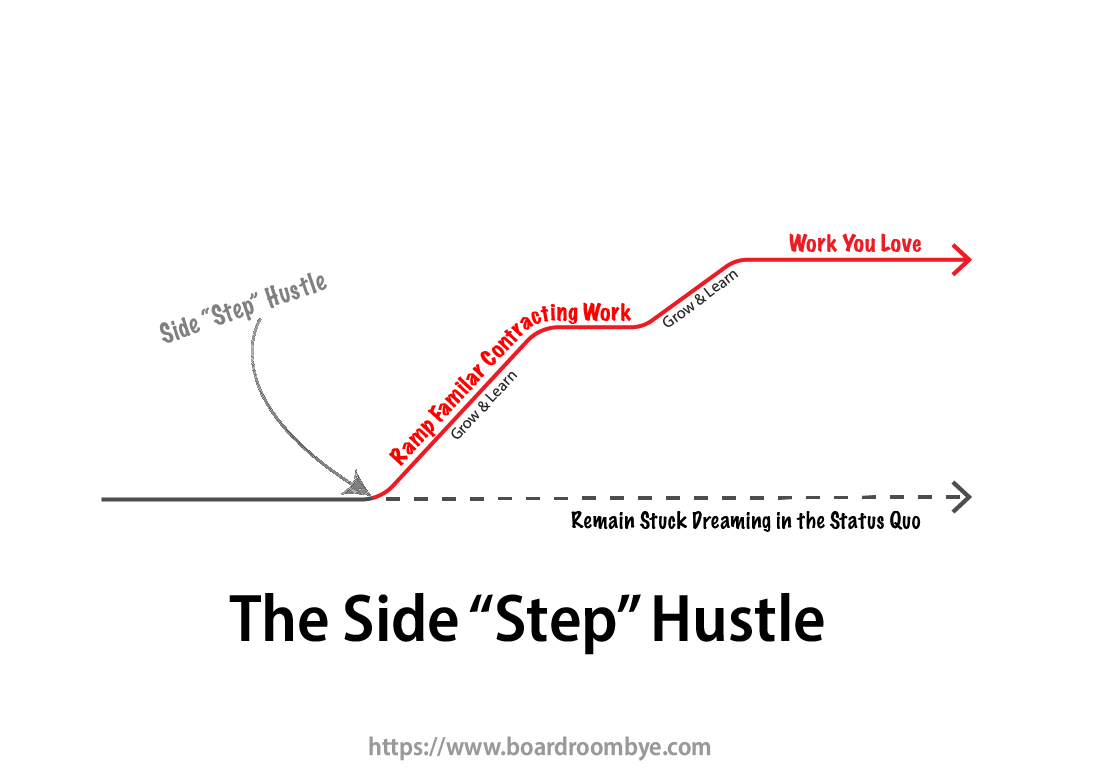Building Your Self-Employment Support Team

While trying to build momentum for my executive exit, I had two major areas of “unknown territory” that really dragged out the process:
1. The basic logistics and moving pieces of having a business worried me. Taxes, contracts, bank accounts, entity formation, etc. was all unknown and mysterious. Didn’t know where to start there.
2. I wasn’t totally sure what the business should be or what “I really wanted to be when I grew up”. I didn’t even really know what my definition of “success” was, even. Having no clarity on any of this, I didn’t have enough motivational buoyancy to keep a head of steam going in an entrepreneurial direction. My vision of what the future could be was blurry and nebulous. Meanwhile the years ticked by as I felt increasingly trapped in an executive identity.
Driven by strong referrals from friends and family who had their own businesses, I eventually built what I now call my “support team” of professionals that have helped me gain clarity in both of these areas, and so much more.
This support team has helped me:
- Make scary stuff not scary generally
- Not get in legal or financial trouble
- Navigate new feelings, cycles of lows and highs, and challenges as they come along
- Make key networking connections and referrals
Most of these folks are local to where I live, which is helpful. Try to find local businesses that you can visit and work with in person, that are supporting other local businesses. Not only is it handy to have them close by, but they can also be a source of local referrals for you.
Here's the support team that sped up my transition:
- Lawyer. Ideally a local firm/lawyer that specializes in small businesses and startups. They will initially help you form your LLC/Corporation and then help you with contracts like your MSA (Master Services Agreement) and SOWs. You don't need to have a lawyer "on retainer" necessarily but it's certainly good to have one in your Rolodex that is responsive and familiar with you and your business.
- Banker. When I started my business, I walked into a local branch of the bank that I already use for personal banking. I had a check in my hand from my first paid gig. All I knew is that I wanted to set up a corporate checking account for the business. I had no idea how helpful the commercial banker would be. He set up a checking account, gave me checks, and even set me up with a corporate credit card right off the bat. Since then he has helped me with stuff like ACH payments for subcontractors, proxy routing numbers, and so much more. You'll be happy that you already know this person and have this relationship. You'll want to check in with them regularly, this is a worthy relationship to keep up with over the years.
- Accountant. I asked a friend who owned several businesses for an accountant referral. He said “You’ve gotta use this person. They basically make all of my stress go away every time I talk to them”. And, he was right. A good accountant is quite possibly the most important part of this whole thing. They work with hundreds of other businesses and have seen it all. They can navigate your taxes, expenses, and retirement savings options as a self-employed individual. They can usher your evolution from LLC to S-Corp. Navigate owner draws. Payroll. Quarterly pre-payments. They can ensure you are complying with constantly-changing federal and state requirements. They are the absolute masters of making the scary un-scary. Make sure you pick the right one here, it's a game changer if you do.
- Career Coach. By the time I left my full time job, I had over 6 months of coaching under my belt and another 6 months of side work on top of that. The higher you are up in your career ladder, the longer your transition to self-employment is going to be. Your coach is someone that needs to be brought on as soon as you start thinking about leaving the boardroom life, while you are still working full-time and starting to commit to a transition. I know for me this lit that initial fire and kept me accountable to keep moving forward and translate my dream into reality. The investment forced me to take it seriously, know I’m investing in myself, and keep making progress for every meeting. Every competitive athlete needs a good coach. Same with any would-be entrepreneur. A personal career coach will help you shed the old identity, let go of the old definition of success, and help you figure out what you're building. Define what success really looks like for you. What your values really are. What mental blockers hold you back from your greatest success. Then they will help hold you accountable throughout that process. They are also deep wells of positivity, and you're going to need that. In periods of tremendous self-doubt or negative spirals, they will remind you of your strengths and how truly "on the path" you are to get you back in the right mindset.
When I talk about the side "step" hustle, one of the main reasons I advocate for starting your self-employment journey with familiar work is so that you can establish this team early on. It'll be tough enough starting a dream business AND finding this team at the same time– get this team together to support familiar work and that entire transition first.





